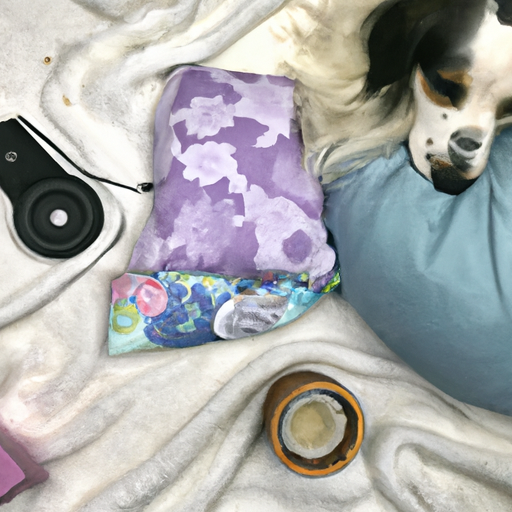Introduction
As a caregiver to your dog, you understand better than anyone that sometimes, our four-legged friends can get anxious. Whether it’s a thunderstorm, a trip to the vet, or a loud celebration, these situations can cause distress in your dog. But fret not, there are remedies. And in this guide, we’ll explore what can be done to help calm your dog.
The Power of Training
Training is not just about teaching your dog to sit or stay. It’s about creating a bond of trust and understanding.
- Basic Obedience Training: Start with basic commands such as sit, stay, and come.
- Desensitization: Gradually expose your dog to the triggers of their anxiety in a controlled environment.
- Counter-Conditioning: Pair the trigger with something positive, like a treat or a favorite toy.
Remember, patience is key. You’re not just training your dog, you’re nurturing your bond with them.
Natural Remedies
There are a plethora of natural remedies that can help your dog relax:
- Chamomile: Yes, the same tea that helps you unwind can do wonders for your dog.
- CBD Oil: CBD oil for dogs has shown promising results in reducing anxiety.
- Aromatherapy: Certain essential oils can help soothe your dog’s nerves.
Before administering any natural remedies, consult with your vet to ensure it’s safe for your dog.
Commercial Calming Aids
In addition to natural remedies, there are commercially produced solutions you can consider.
| Product | Description |
|---|---|
| Calming Chews | These are treats infused with calming ingredients. |
| Anxiety Wraps | These apply gentle, constant pressure to help calm your dog. |
| Pheromone Diffusers | These release calming dog pheromones into the air. |
Providing a Safe Space
Sometimes, all your dog needs is a safe, quiet space to retreat to. This could be a crate, a separate room, or a cozy corner. Fill this space with your dog’s favorite toys, blankets, and a piece of your clothing. Your scent can provide comfort to your anxious dog.
Frequently Asked Questions
Q: Can I give my dog human calming pills?
A: No, it’s not safe. Always consult your vet before giving your dog any medication.
Q: How long do the effects of calming aids last?
A: It varies. Some last for a few hours, others can last up to a day.
Q: My dog doesn’t respond to calming aids. What can I do?
A: Consider seeking professional help. A dog behaviorist or a vet can provide further guidance.
Remember, as a caregiver, your calm and patient demeanor can go a long way in helping your dog feel secure. After all, our dogs look to us for guidance and reassurance. So, let’s ensure we’re providing them with the comfort they need in their times of anxiety.



